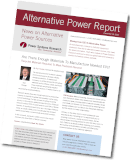Brazil Moves Forward on Truck Fleet Renewal Program
BRAZIL/SOUTH AMERICA REPORT
In December 2022, the Brazilian Government published regulations for the Fleet Renewal Program authorized by the law that was published in H1 2022. Under this regulation, truck owners may receive the old truck market value from companies in the Oil and Gas exploration chain, provided that they prove the truck was taken out of circulation, disassembly and recycled. The program is voluntary, both for owners selling the old truck and for O&G companies designating resources for the program in exchange for a reduction of duties on O&G exploration contracts.
Source: M&T Read The Article
PSR Analysis. Preliminary analysis suggests the program won’t be very effective, since significant recycling and paperwork efforts are required to sell the old truck at market prices. It seems this is a regulation published to show environmental efforts, but one that will have limited effectiveness. No impact is seen in the Truck Market now unless market conditions change drastically. PSR
Fabio Ferraresi is Director Business Development-South America for Power Systems Research






